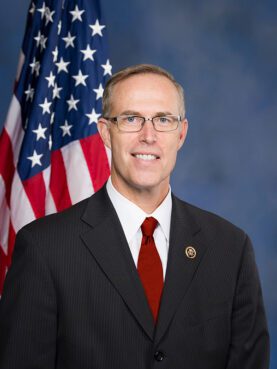(RNS) — Since the passage of the Affordable Care Act in 2010, health care “sharing ministries” sprang up as more affordable options to the policies offered by national insurance companies for the Obamacare marketplace. Often developed by Christian organizations, the sharing ministries had the further advantage of being exempted from ACA’s mandates on contraception and abortion. Small religious communities were told they could cover their members while preserving their moral principles.
The sharing ministries are not health insurance, though critics say they are often billed as such. Rather, they are cooperatives in which consumers pool their money to help each other through medical emergencies. While they have existed for decades, enrollment in these programs has been estimated to grow from about 100,000 members in 2010 to 1.5 million members in 2020.
Now U.S. Rep. Jared Huffman, the congressman for much of California’s Bay Area, is going after what he calls deceptive marketing and dangerous practices of health care sharing ministries, charging that customers have been left with unpaid bills.
While industry experts note that some health care sharing ministries have provided generous coverage of large medical claims, they’re not obligated to do so and are not subjected to oversight and regulation, according to the resource site Verywell Health. The health shares don’t have to comply with any government health benefit requirements and can exclude treatment for mental health, substance use disorders and preventive care, according to The Common Wealth Fund.
Huffman said the exemptions were originally intended to allow “true religious ministries,” such as the Amish community, to “go their own way when it comes to funding their health care needs.” Instead, he said, “it opened a Pandora’s box for all of these Ponzi schemes.”
“The common problem is people thinking that they have health insurance-like coverage, and finding out the hard way that they really don’t,” Huffman said.
In July, Huffman introduced the Health Share Transparency Act. If passed, it would require health care sharing ministries to disclose a range of information to the Internal Revenue Service, the Consumer Financial Protection Bureau and other federal agencies, including data about financial reserves, the ratio of dollars collected versus how much was actually spent on medical services, and the number of people enrolled in the sharing ministries.
Health care sharing ministries would also have to include a list of services deemed ineligible for reimbursement and reveal to consumers that they are not insurers and are not required to pay claims.

U.S. Rep. Jared Huffman. (Official U.S. House of Representatives photo/Creative Commons)
“What it’s really about is disclosure, and accountability, and making sure that there is some government oversight to protect consumers,” Huffman said.
In January, California Attorney General Rob Bonta sued the Aliera Cos. and the Moses family, which founded Sharity Ministries, a nonprofit that Bonta said purported to be a health care sharing ministry. Rather than paying its members’ health care costs, according to the state’s complaint, Aliera declined claims and retained nearly 84% of its members’ contributions.
Before California’s lawsuit, more than a dozen other states had already taken action against the company. Last summer, Sharity filed for bankruptcy, leaving an estimated 10,000 families millions of dollars in debt.
Health care sharing ministries are fighting back to rescue the industry’s reputation. The Alliance of Health Care Sharing Ministries, a lobbying group founded in 2017, recently announced a new independent accreditation board requiring ministries to meet certain standards to “demonstrate their integrity and credibility.”

